Mario García-Valdez
NodIO, a JavaScript framework for volunteer-based evolutionary algorithms : first results
Jan 07, 2016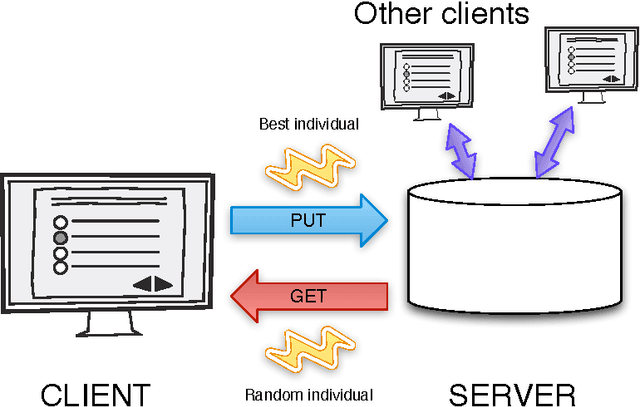
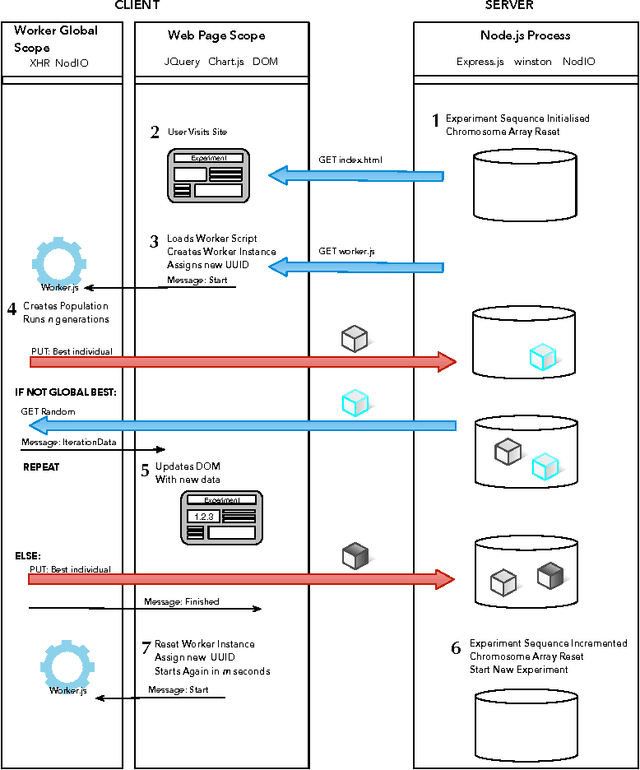
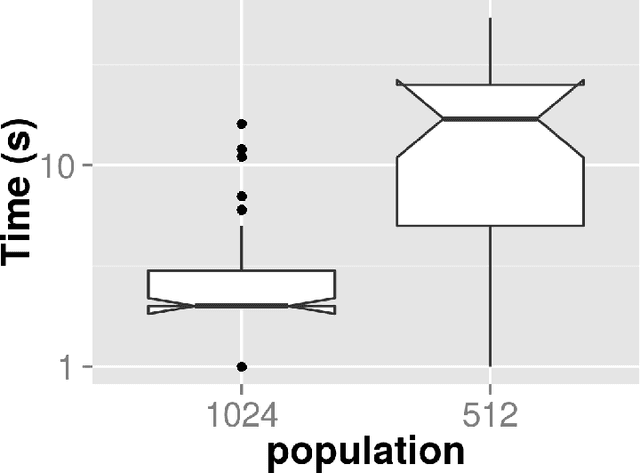
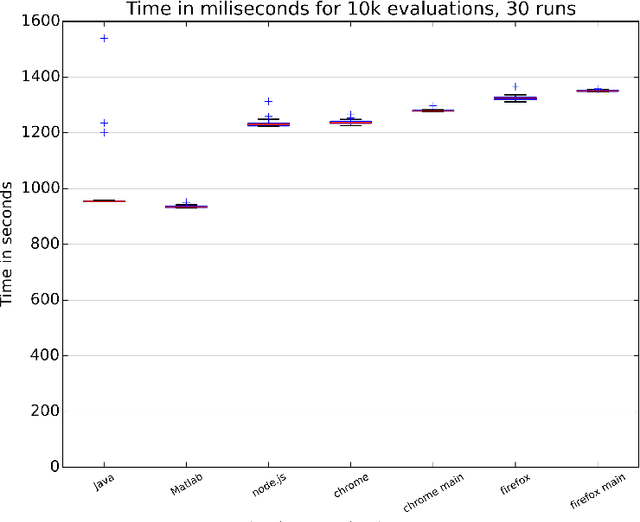
Abstract:JavaScript is an interpreted language mainly known for its inclusion in web browsers, making them a container for rich Internet based applications. This has inspired its use, for a long time, as a tool for evolutionary algorithms, mainly so in browser-based volunteer computing environments. Several libraries have also been published so far and are in use. However, the last years have seen a resurgence of interest in the language, becoming one of the most popular and thus spawning the improvement of its implementations, which are now the foundation of many new client-server applications. We present such an application for running distributed volunteer-based evolutionary algorithm experiments, and we make a series of measurements to establish the speed of JavaScript in evolutionary algorithms that can serve as a baseline for comparison with other distributed computing experiments. These experiments use different integer and floating point problems, and prove that the speed of JavaScript is actually competitive with other languages commonly used by the evolutionary algorithm practitioner.
There is no fast lunch: an examination of the running speed of evolutionary algorithms in several languages
Nov 03, 2015
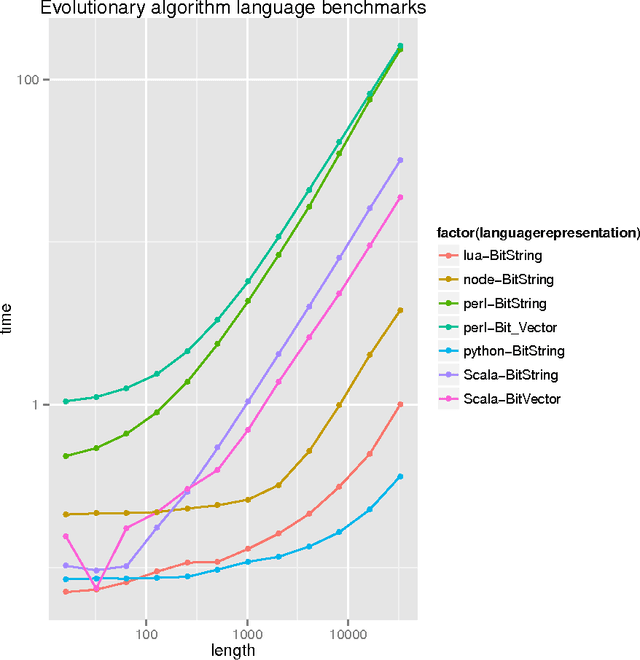
Abstract:It is quite usual when an evolutionary algorithm tool or library uses a language other than C, C++, Java or Matlab that a reviewer or the audience questions its usefulness based on the speed of those other languages, purportedly slower than the aforementioned ones. Despite speed being not everything needed to design a useful evolutionary algorithm application, in this paper we will measure the speed for several very basic evolutionary algorithm operations in several languages which use different virtual machines and approaches, and prove that, in fact, there is no big difference in speed between interpreted and compiled languages, and that in some cases, interpreted languages such as JavaScript or Python can be faster than compiled languages such as Scala, making them worthy of use for evolutionary algorithm experimentation.
 Add to Chrome
Add to Chrome Add to Firefox
Add to Firefox Add to Edge
Add to Edge